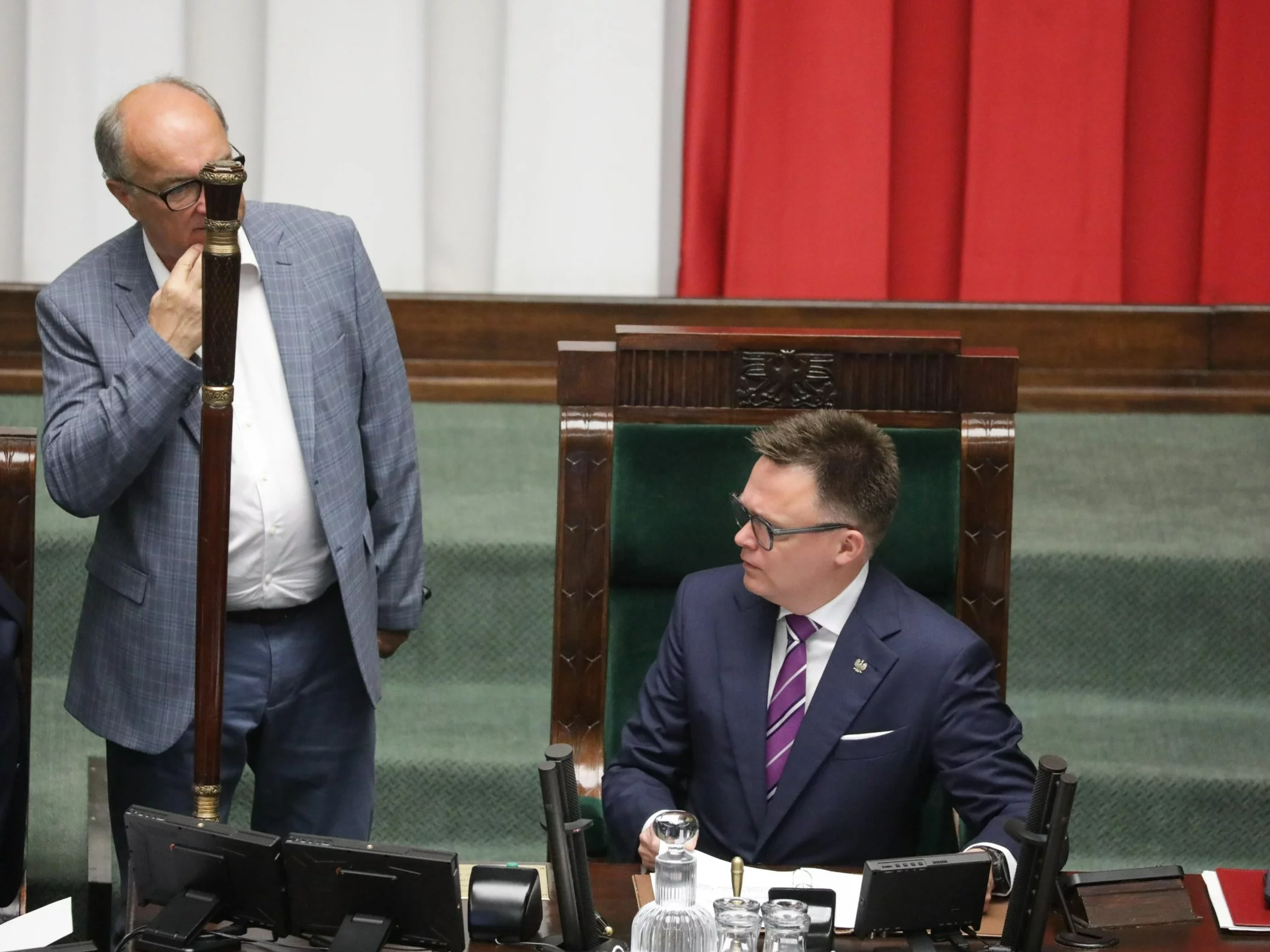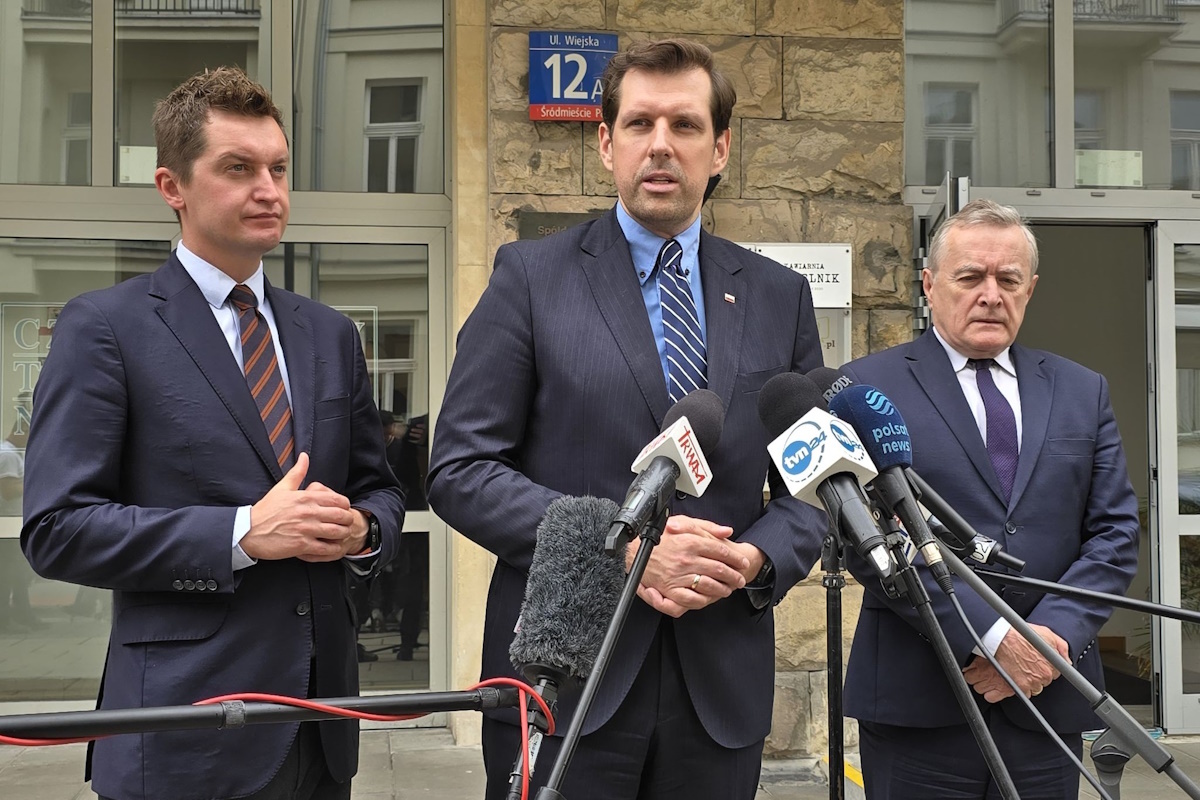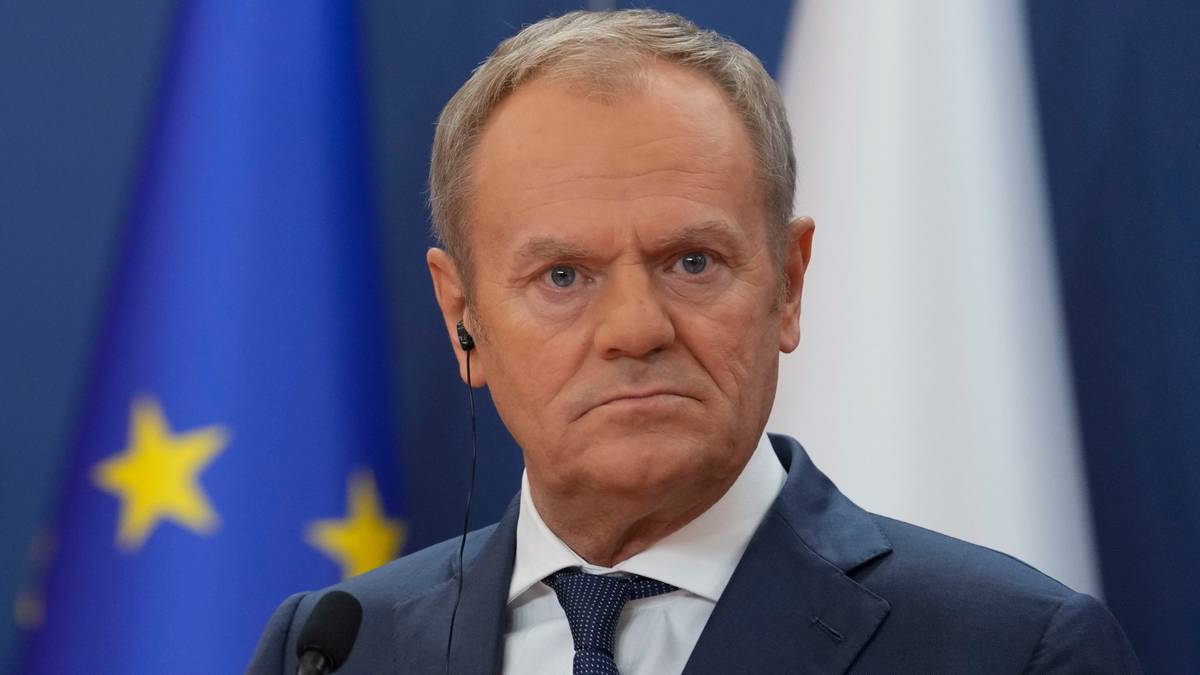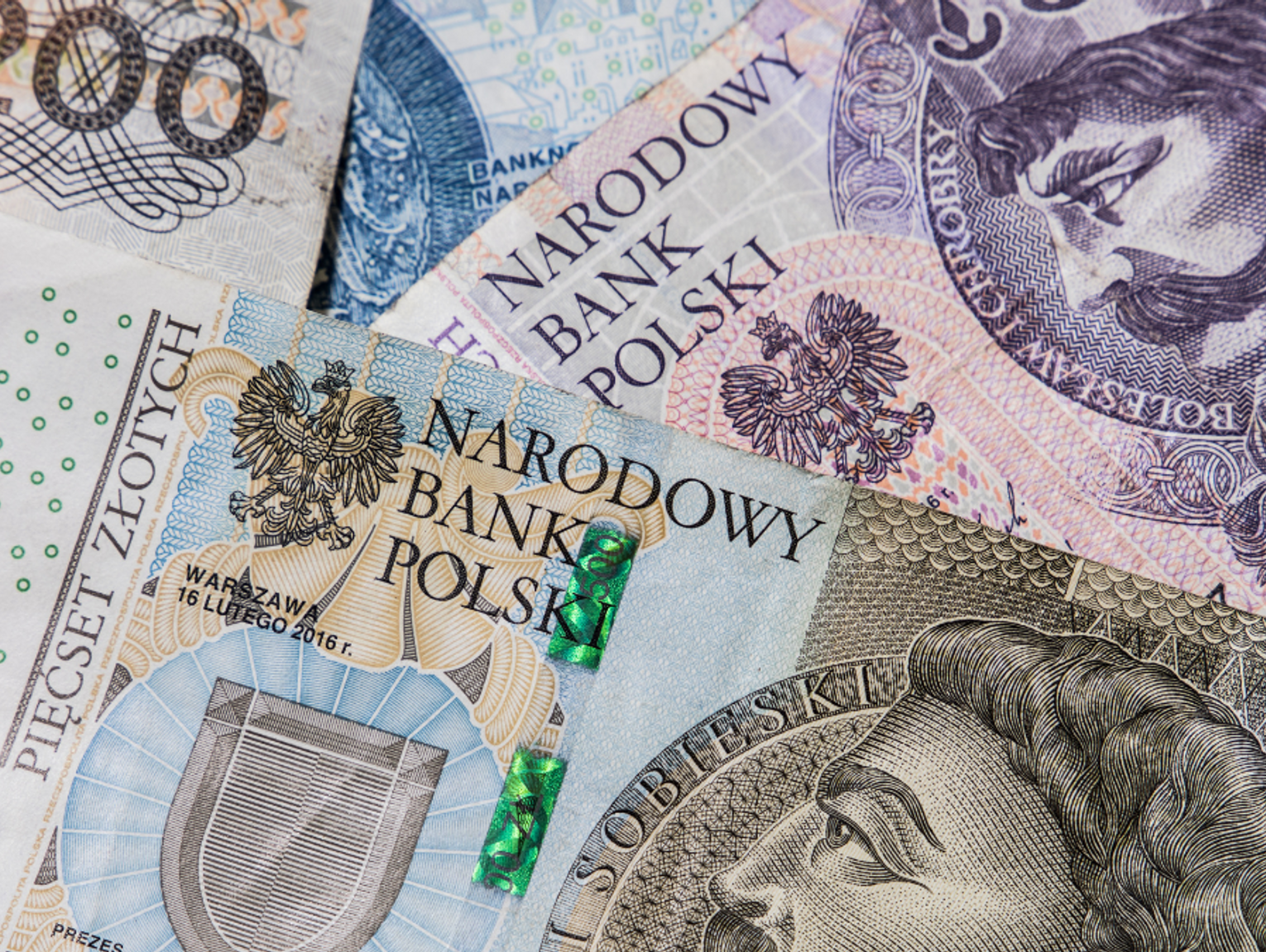It was a year after the “lost victory” of the Law. During this time, Jarosław Kaczyński's organization proved that he is just a patch for a liberal order which in Poland – to paraphrase American political scientist Patrick J. Deneena – at the same time wins and bears the defeat “showing to us without any ornaments”.
The most openly and full of demasking of the deformed face of liberal order in Poland were, of course, Donald Tusk's words about "a fighting democracy", whose logic is expected to apply over the Vistula. The Prime Minister has thus acknowledged that he does not want to justify subsequent decisions with the logic of the regulation of law. He simply stated that temporary detentions, brutal repossessing of further institutions called the falsely "recovery of the state from written hands", or the withdrawal of countersignatures, were lawful actions. He thus mocked many lawyers, experts, publicists, and even his co-workers, who, in sweat of their foreheads, twice and three, explained throughout the year that the government, yes, operates on the border of law, but remains in law. Nothing like this: the law does not substance erstwhile the tyranny of Jarosław Kaczyński must be stopped.
But how does the Law and Justice respond to these urges of Donald Tusk? What happens to the party, which has not so long since appeared to have won the philosophical stone of Polish politics, winning in the following elections?
Child of Liberalism
Contrary to what PiS politicians present say about defending democracy against falling, they were most hurt by how rapidly and radically they were removed from power. The brutality of the government coalition went much further than the cynicism with which the United Right exercised power.
And yet, it is hard not to get the impression that Tusk learned from Kaczyński how to take advantage of the crisis in which liberalism found itself. A crisis that may be the forerunner of his final demise. The Prime Minister will have you just as PiS did, but even more so. He does not negociate to take power in subsequent institutions, but he absolutely masters it, showing his predecessors unprecedented brutality.
There wouldn't have been this aggressive stroke of Tusk if it hadn't been for PiS's earlier actions. In fact, if you look at the actions of the United Right, then 8 years of their regulation can only be described as a correction of the political paradigm according to which the subsequent governments of the 3rd Republic operated. Rejecting a turbocapitalist attitude to minimize debt and fight inflation, to grow social benefits or to tell stories of large investments to guarantee that we advance civilization – this is simply a fundamental change in the regulation of the Law and Justice. And it's fundamentally stopped there. Kaczyński primarily thought party, and only later the state and for 8 years of government managed to satisfy his group, without moving the organization layer of the state.
The PiS has so not become a organization to anti-liberal rebellion. The crisis of liberalism Kaczyński utilized epidermally. He knocked out your teeth by disassembling the next fuses and satisfied himself with a snarky piece, allowing the organization army to slavish in the gained fortress. He simply refused to entertain himself at the expense of the people to whom he gave appropriate tributes, making him a shield for his rule.
Maybe he wanted more, but he couldn't, due to the fact that he built a structure bound by infirmity. While the Polish state suffers from decision-making, Kaczyński strengthened this powerlessness, creating 2 strong centres of power: government, equipped with state and organization control tools, with ambitions of deciding everything.
If we compare Kaczyński's regulation to Orban's rule, we're talking about 2 polarally distant ways of ruling. Orban – like the chief of the Law and Justice – is besides aware of the dusk of liberal order, but reacts differently to it. It creates a "new Hungary", building an ideological communicative that represents a real competition for a liberal tale of freedom that exceeds further economical and cultural barriers. It provides a body for organization change.
Kaczyński, alternatively of dismantling the order, sealed his holes with patches. He couldn't defy anything else. possibly due to the insistency of the state structure, which in association with the party's management model proved even more impotent than usual, and possibly due to the fact that it recognized the party's primacy before the state as the essence of political survival. Or else: possibly he was no longer able to – as he did in the late 1980s and 1990s, erstwhile with all the momentum he hit the opposition environment, presenting a more extremist thought of systemic change – to transcend his biography and go against the current ideological patterns. He remained a faithful kid of liberalism, but conscious of the concessions to be made for the tired sacrifices of the 1990s and 2000s people.
After all, the dream of his life was to make a “Polish CDU” alternatively than an anti-systemic group of the era of the collapse of liberal order.
One root
That's why Kaczyński has been writhing for almost a year, trying to find a communicative that would let him to return to power. The differences between him and Tuski are not as immense as the hard electorates of PiS and PO believe. Tusk, too, as a very intelligent politician, learned from Kaczyński that the patching of the battered boat of liberalism allows to extend concessions to exercise power.
The leader PO cleverly balances between the liberal background and the request to legitimize his power in the European elite and the necessity to respond to an anti-liberal rebellion. If it blocks the granting of asylums or sustains part of social benefits, it is precisely to gain protection from the anger of disappointed Poles. Similarly, it was a request to exhume the victims of the Volyn massacre. Neither Tusk nor Sikorski did much in this field until the thing became loud due to the erstwhile head of the abroad Ministry of Ukraine, Dmytro Kułeby. His outrageous statements during Campus shocked the public, which in turn sparked a decisive consequence of the government.
Kaczyński to specified a balancer Tusk seems powerless. He is sentenced to a feverish search for a divisional axis, which will let him to re-describe this dispute and disprove it politically. There's no thought yet. To prove that the opposing organization is simply a ‘Russian onus’ does not work specifically. It was besides not very breathtaking to fuel the division into “Europeans” and “locals”, after all, Poles do not yet feel besides many burdens associated with the presence in the European Union.
The problem in the struggles between the Law and the Law and Justice – likewise for years of the regulation of the Law, erstwhile the Platform could not find a way to remove from the authority of the United Right – is in fact a reasonably akin set of values and perfect roots of both groups. This brings a dispute between these parties to the race to name social emotion and to set up a polarization line that will let the radicalization of voters and the distribution of election plebiscite.
No idea
This similarity between parties can be seen perfectly in the approach to the issues of civilization. The Law and Justice Department assumes that an abortion dispute or homosexuality is more detrimental to him, so it does not take a glove here. Tusk begins in this field boldly, de facto legalising abortion with the back door, but for Kaczyński much more crucial are the regulation of law issues related to the reversal of the countersignature than the taking of unborn life. So it takes the PiS back to the deep defensive and allows you to charge the fighters from the coalition.
So what is the thought of the PiS for Donald Tusk? After the demolition of TVP, the National Prosecutor's Office, the arrest of MPs Mariusz Kamiński and Maciej Wąsik, is the PiS ready to face the "fighting democracy"?
In a fresh interview with the “Network”, Kaczyński shows inability to face the PO. There's no way to deal with Tusk's aggressive offensive. This interview seems to be even in a way curiosity, due to the fact that the leader of the Law and Justice organization does not actually propose anything that can be accomplished in consequence to the dismantling of the state that the coalition is presently carrying out.
Kaczyński proposes to change the constitution in the first place. He is debating fresh institutions, but it is not clear how he would like to change this constitution. For 8 years, PiS did not even effort to build a majority that could pass a fresh basic law. And he had instruments.
Second, the head of the Law and Justice Department declares that he wants to build a wide tent. This is simply a song that Jarosław Kaczyński gave voters many times erstwhile after 2007, he was in opposition for many years. But building this camp looks beautiful bad. Aversion to the PiS dominates both the PSL and the Confederacy, and the only consequence of writers to criticism from these groups is pushing them into Tusk's arms.
Thirdly, the president himself announces a hit at Tusk after he regains power. What Kaczyński speaks about is, unfortunately, absurd, like the annulment of judgments issued by courts in cases that Kaczyński considers political. While the current two-powers in the courts or prosecutors make chaos on an unprecedented scale, the annulment of judgments sounds like a coup d'état. On what grounds will Kaczyński do this? Who will overturn these sentences? And what precisely are these judgments to be overturned? The consequences of specified decisions will be lamented.
The slower the better
The only way to respond to a "fighting democracy" Donald Tusk would actually be a fresh political concept, in proportion to the 1 created in consequence to the rotting of the state under the SLD. Tusk is in any sense a syndicate of the liberal bankruptcy mass, but he realizes that – unless there is simply a revolution and it is not announced for now – liberalism can rot for a long time. It is so worth revitalizing, taking over any of the slogans of critics of liberal order. In this way, rebellion is cleverly canalized.
Kaczyński thinks similarly, but that he is ready for more extremist slogans. Especially in opposition, he can bid higher. However, it does not propose any fresh political concept which would imply a real state sanction. Why? due to the fact that he doesn't want to. The essence of Kaczyński's existence is to be present in political mainstream and to safe resources to the right of the centre. The alliance with Sovereign Poland is to neutralize more extremist critics of the Law and Justice.
Besides, the political method is simple: to be an alternate to PO. It is so not about winning elections and making changes, as proposed, but about becoming an option of first choice erstwhile the government loses support. And then keep power, threatening the return of the predecessors.
It seems that both politicians, caught in an iron grip, now have only 1 prospect: to survive. due to the fact that the liberal order that gives them fructa dies slowly. And the slower he dies, the better. For Tusk and Kaczyński, of course.
Tomasz Figura














